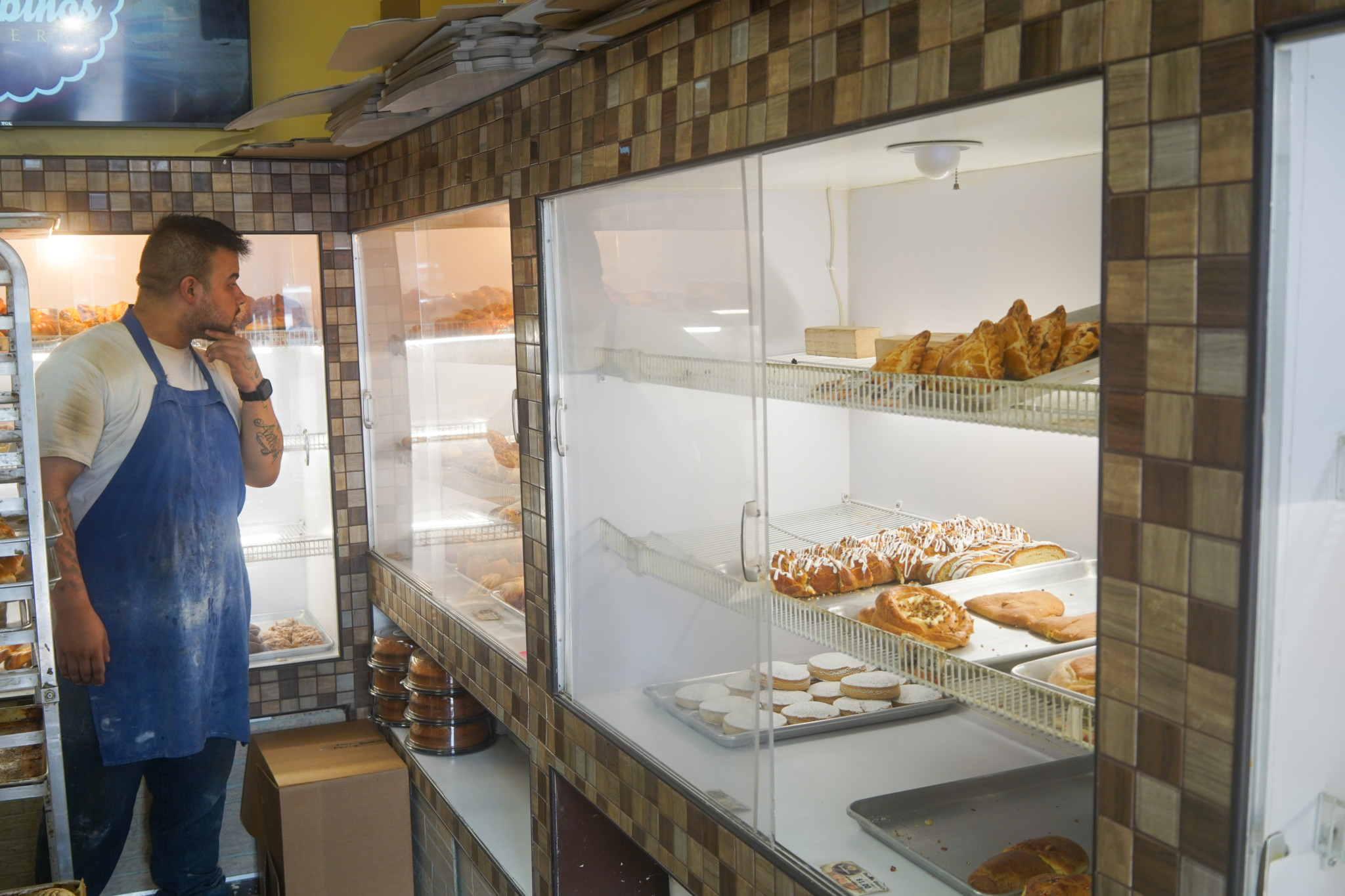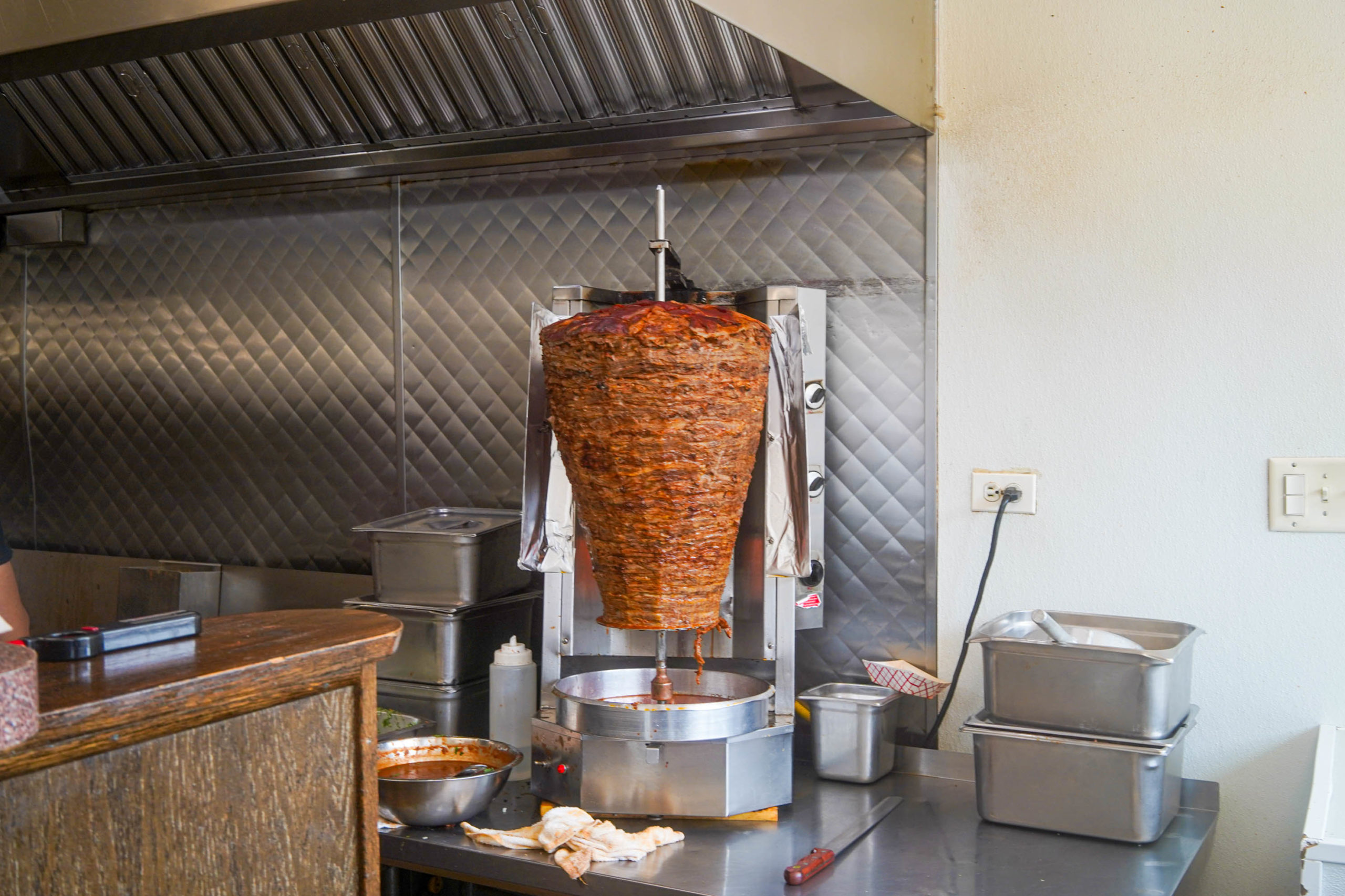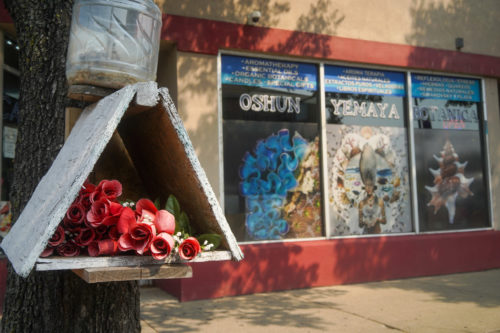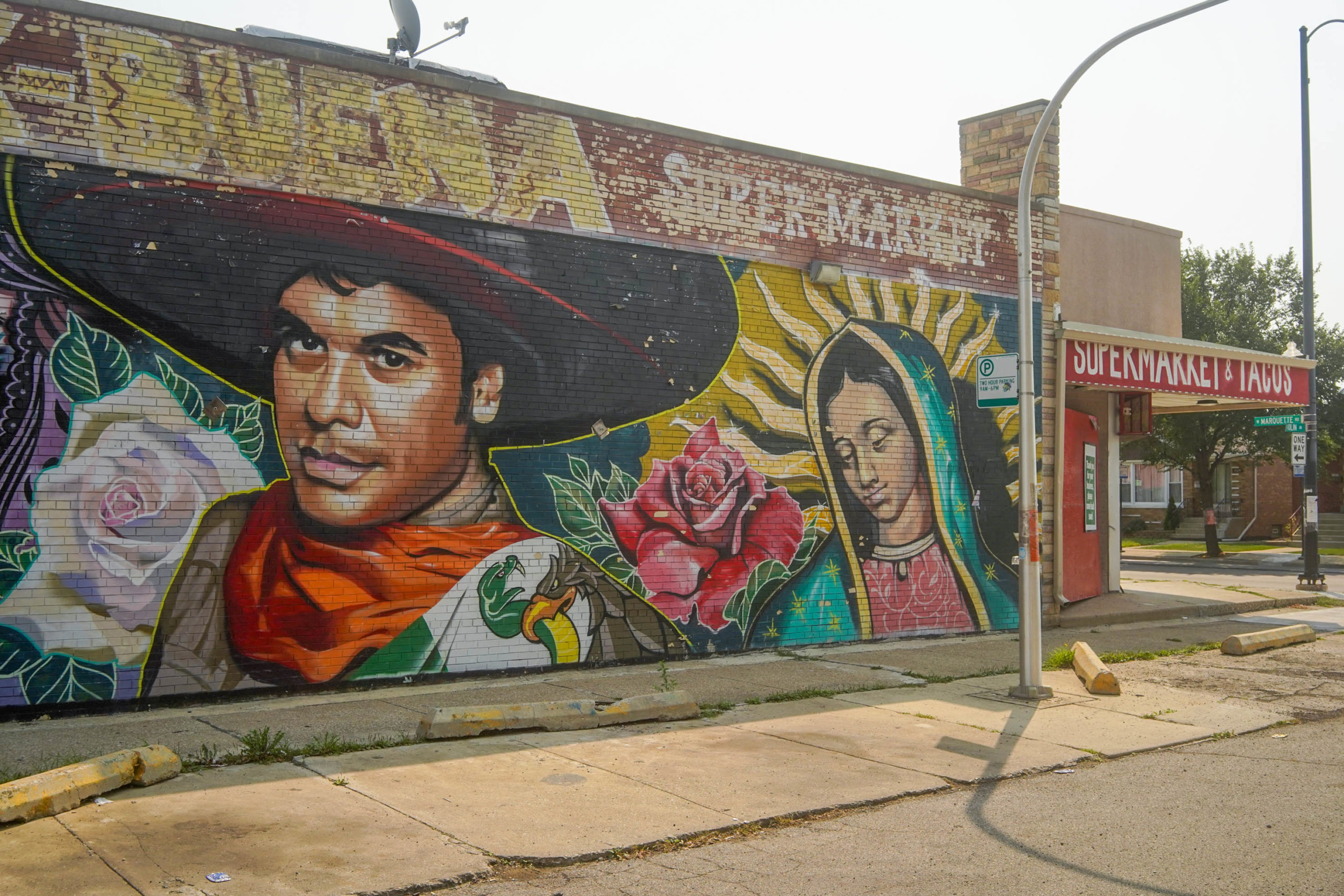It may be described as a “melting pot” of cultures, but in these two neighborhoods Mexicans are thriving in the city. Chicago Lawn and West Lawn are linked by a commercial street that serves as their main artery: 63rd St.
Although not everything is within walking distance, both are close to Midway Airport, public schools, two parks with family and extracurricular activities and, of course, Mexican food from various places and of various specialties.
The history of the Mexican community in West Lawn and Chicago Lawn is not new. Their arrival is recorded dating back to the 70s. Previously, these neighborhoods were inhabited by European immigrants of Polish and Lithuanian descent. Proof of this is the Balzekas Museum of Lithuanian Culture, located at 6500 S. Pulaski Rd., and the Lithuanian Catholic Press Society, at 4545 S. 63rd St.
However, in the last two decades the Mexican community has grown. In West Lawn, for example, recent figures highlight that eighty percent of the population is of Latinx origin, the majority being of Mexican descent. This is notable along 63rd St., and on its storefronts, the use of the Spanish language and a variety of Mexican customs and traditions are clearly present.
In these parts of the city, unlike Pilsen and La Villita, there is not a museum or a robust commercial network, but West Lawn and Chicago Lawn have something going for them and are a mix of big and small family-owned businesses that, additionally, have easy access to public transportation. That’s why you can find places here that make you feel like you’re in a Mexican city and a community-based environment.
At the business level, many try their luck, but some stores remain operating through the years without having a marketing strategy or even social media. Their clientele is dependent on the original social network that never fails: the word of mouth, and customers who, without being “influencers,” pass along their recommendations. People are treated like family.
Last year the 60629 zip code, which encompasses Chicago Lawn and West Lawn, was one of the most affected by the ongoing COVID-19 pandemic, and it’s where a large number of cases of the virus and deaths were registered.
However, in this zip code, one never stops eating or dancing. Perhaps because of that very Mexican philosophy attached to sayings such as “las penas con pan son buenas” or “a falta de amor, unos tacos al pastor.” (Gisela Orozco)
Gisela Orozco is a Mexican immigrant with a degree in Communication Sciences who has resided in Chicago since 2002. For ten years she was the entertainment editor of the now-defunct Hoy newspaper, the Spanish-language publication of the Chicago Tribune. Previously, from 2002 to 2009, she was a reporter and entertainment editor for the weekly La Raza. She is currently a copy editor and contributes articles for La Voz Chicago (Sun-Times) and translates articles for South Side Weekly and the Institute for Nonprofit News.
This section was originally written in Spanish and has been translated by Jacqueline Serrato.
Best Supermarket
La K-Buena Supermarket
For five years, La K-Buena Supermarket has also been known as the site of the “Juanga” mural. It is the store where you can see the face of the late Juan Gabriel (1950-2016), one of the most celebrated Mexican singer-songwriters. But before the artist, Debso, painted “El Divo de Juárez” on its walls, the supermarket already had a history in the neighborhood.
Located a few blocks from West Lawn Park, this family business was established in 2000. “It was the first Hispanic business around here,” says Manuel Chávez, the son of the owners. “My dad first had it on 61st Street and then we moved.”
When they arrived at their current location, Chávez said, there weren’t many Latinx or Mexicans in the area and there were a few gangs tagging the supermarket walls with graffiti.
It was then that Debso proposed to the owners to make a mural, right when Juan Gabriel had passed away. “He wanted to make a large mural to celebrate not only the Mexican culture, but also Juan Gabriel. And the Virgin of Guadalupe and the Catrina are also [in the mural].”
This has made it the scene of several photographic sessions and music videos, such as the song “La muerte del palomo,” by two Chicago talents, the singer José Alfredo and the Mariachi Sirenas.
That’s the appeal of the outside. Inside, the supermarket offers traditional Mexican products, from tortillas, salsas, cuts of meat, to snacks and cecina. It is the typical neighborhood corner store that’s there in an emergency when your groceries run out or when you want to buy a snack.
“We have products that we know are going to be sold and that people need, for example, during a holiday. And on weekends we sell carnitas, menudo, pozole. People come because they know the food is good,” Chávez said.
In this neighborhood, what has made La K-Buena Supermarket a family business is not only its owners.
“What makes the neighborhood different is that we are close to everything, like large stores, but people have the habit of coming to small stores, to family businesses. The customers themselves are already like family. We get along that way and they keep an eye on us”. (Gisela Orozco)
La K-Buena Supermarket, 4324 W. Marquette Rd. (773) 838-8425. Monday-Sunday 9am-8pm.
Best Bakery
Bambino’s Bakery

When you enter Bambino’s Bakery, the first thing that greets you is the smell of fresh gorditas de nata being cooked on the comal and of the bolillos coming out of the oven.
Then you’re drawn to the glass window displays containing every kind of pan dulce, from empanadas to the cuernitos, to the traditional conchas and certain bread styles that look like they have just been brought in from one’s pueblo. They make you crave a bite. And since love is born at first sight, there is no way to resist so much temptation shaped like bread.
The name of the bakery, which means “child” in Italian, cannot hide the fact that what’s being baked is authentic Mexican bread in the style of León, Guanajuato, where the owner Jesús Omar Aguilera is from.
When he immigrated to Chicago twenty-three years ago, Aguilera was not a baker. His family’s trade, as is tradition in León, was shoemaking. However, when he arrived to Chicago, his first job was in a bakery, and from there he perfected his craft.
“We liked [baking] and we are still here,” he said in an interview.
Before venturing to open Bambino’s in late 2016, he owned another small bakery located on Archer and Sacramento. His goal when opening Bambino’s was to offer Mexican pan dulce with the true flavor of Mexico, and he’s doing it.
Walking into the bakery or tasting the bread is enough to be transported through time to memories of your childhood, such as sitting at the family table with a piece of bread and a delicious hot chocolate or a good café de olla.
To achieve this, there is a formula: using the right ingredients while doing as most Mexican bakeries do, working to the rhythm of loud music as a way to get inspired in the kitchen.
Omar and his wife, Estefanía Coronel, get up before sunrise with their seven employees to serve their customers in the early hours of the morning. “We open at 5 a.m. and the girls [who make] the gorditas start at 6 a.m., and we work until 4 p.m.”, said Coronel.
The gorditas de nata are Bambino’s specialty bread. They are not only made to sell in the store, but also wholesale for other distributors so it is common to find them in chain supermarkets like Cermak Produce.
As far as taste, there is variety. There are bolillos dobles, the heartier ones that are used in León to prepare the famous guacamaya tortas, which have chicharrón, super spicy red salsa, avocado and lime, and which are one of the most famous snacks in that city.
In Bambino’s there is representation of bread from various parts of Mexico. “We have like a hundred varieties of bread,” Coronel calculates. “Something also very typical of Guanajuato are the famous atole quesadillas and bread from other regions, like the coyotas” that are originally from the state of Sonora.
During the peak of the COVID-19 pandemic, their business was unaffected. On the contrary, “We did pretty well,” Aguilera recalls. “As the tortillerías closed, the Mexicans, when there is no tortilla, we eat more bolillo”.
Being a family business, the owners of Bambino’s had to learn as they went about managing, equipping, and improving their business.
“We jumped into the ring and learned along the way. The mistakes we made [in the other bakery] we didn’t make here,” Aguilera added.
In addition to bread, in Bambino’s you can find cakes, chocoflanes, jellies, cajeta (dulce de leche) and honey. And yes, the Mexican-style coffee with cinnamon and brown sugar, café de olla.
“One thing we do: we give a [free] coffee to everyone who buys bread.” (Gisela Orozco)
Bambino’s Bakery, 3510 W. 63rd. St. Monday-Saturday, 5am-9pm. (773) 306-2987. facebook.com/bambinosbakery
Best Pastor Tacos
Taquería El Pastor

It is common to find countless places or listicles that proclaim that they have “the best taco al pastor”, and that depends on personal taste. But only one taqueria can literally say that the name carries the flavor.
La Taquería El Pastor takes its name from the taco style. Although they include a variety of tacos and dishes on their menu, visiting the restaurant and not tasting their tacos al pastor is like going to mass and not making the sign of the cross.
Fermín Hernández Limón and one of his brothers opened the first taqueria in Chicago Lawn in 1998 on the corner of 63rd and St. Louis, in order to give their father, who has been a taquero all his life, a business of his own so that he wouldn’t have to work for anyone else.
Originally from Jalisco, his father first emigrated to Mexico City where he learned the tacos al pastor technique and added his own style and seasoning. Upon emigrating to Chicago, at first by himself, he began working in taquerías.
With hard work he was able to bring the rest of his family to live with him. Hernández, who was nine years old when he arrived to Chicago, remembers that they first settled in the neighborhood of La Villita.
“We opened this ‘little business’ for him so that he wouldn’t work,” he said.
El Pastor has been in its current location since August 2002. Hernández said they moved from the original place they were renting when the new 63rd St. police station was built in that area.
What is offered in El Pastor are the original recipes of his father, from the salsas that are served to accompany the tacos to the marinade with which the al pastor meat is seasoned. Moving did not lose him customers.
Three years ago they expanded into the next storefront. They currently have twenty-two employees working two shifts and during the peak of the pandemic their orders did not decrease. Without having applications such as Uber Eats or home delivery, customers placed and continue to place their orders to-go. “We have always had a lot of take out orders.”
Hernández remembers that when they arrived in this location, there was only one other Mexican restaurant, La Valentina, located feet away from El Pastor. Now right next to him is Rafa’s Chicken, which specializes in charcoal-roasted chickens.
Still, El Pastor has earned its place and has done it through tacos.
“Our customers are the people of the area. I have customers from when we were in the other place who would go with their parents and now they come with their children,” he said.
In his business, he says, the most important thing is to maintain the quality and customer service. “My customers are the ones who feed me, you have to take care of them and offer them the best quality at the best price.” (Gisela Orozco)
Taquería El Pastor, 4418 W. 63rd St. Monday-Sunday 9am-12am. (773) 284-1003.
Best Botánica
Oshun Yemaya Botánica

In Mexican markets it is common to find stalls with medicinal herbs and also botánicas. They have different methods, but the same principle: to cure and heal with plants.
Although botany is the branch of biology that studies herbs, botánicas are not always a matter of science, but of believing. In these businesses, they sell teas, oils, candles, concoctions, special baths to remove bad vibes, incense, and all kinds of potions and products that promise to attract love, money or provide protection from envy.
There are some who associate these places with magic, witchcraft, and mysticism and some even with charlatanism. To each their own. Botánicas are common in Mexican neighborhoods, and West Lawn is no exception.
Mexican resident Martín Martínez established his botánica, Oshun Yemaya, in 2013. Originally from Jalisco, he migrated from California to Chicago. He says that for forty-five years of his life (he is fifty-seven) he has dedicated himself to doing limpias (spiritual cleansings). He claims he was born with the gift.
“My grandfather helped me to develop it,” he says. The gift of healing with herbs or warding off spirits and bad energies was held by both his paternal and maternal grandparents. When he immigrated to California, he had his first normal job. However, little by little, word of his cleansing and protection abilities began to spread from people who went to him.
He says the controversy over what he does is out of fear or disbelief. “When you do a job, it is not about doing harm, but about removing the bad [energy]. It has to be protected.”
What he does, he emphasized, is use the connection to his ancestors, the shamans, using herbs and the four elements: water, earth, fire and air, and become a spiritual guide.
Cleaning or “developing the gift” is not about getting rich nor doing harm. “You cannot do wrong, there is karma.”
It is another West Lawn business that during the pandemic last year had no drop in their clientele. “There are ups and downs, as in any business. When [there is a challenge] somehow I overcome.” (Gisela Orozco)
Oshun Yemaya Botánica, 4138 W. 63rd. St. Monday and Friday 11am-5pm; Tuesday and Thursday 11am-7pm. Closed Wednesdays. Weekends by appointment only. (773) 735-6044.

